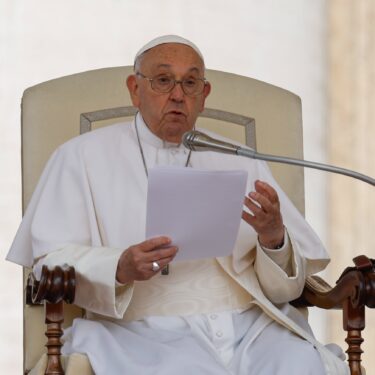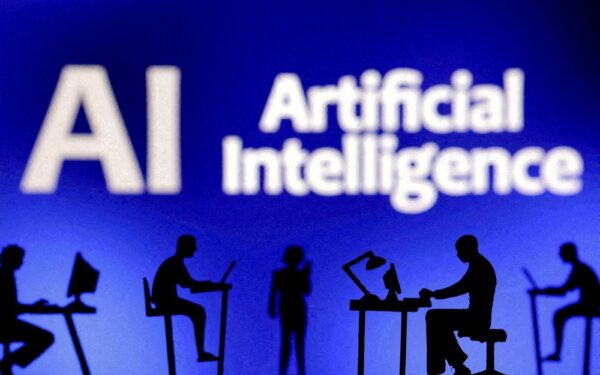
WASHINGTON — This year’s World Communications Day on May 12 takes a closer look at the impact and potential dangers of artificial intelligence.
The annual observance, reflecting on how the Church communicates the Gospel message, is celebrated each year on the Sunday before Pentecost. The tradition started with Pope Paul VI in 1967, and since then it has been marked with a message from the pope about ways the Church can both continue and better its role of communicating in modern times.
Pope Francis’ message for this year’s World Communication’s Day was mentioned last fall and then issued on Jan. 24, the feast of St. Francis de Sales, patron saint of journalists, with the theme: “Artificial Intelligence and the Wisdom of the Heart: Toward a Fully Human Communication.”
In his message, Pope Francis pointed out that although artificial intelligence can be a useful tool to facilitate communication and exchange information, it falls short in providing uniquely human wisdom needed to promote the good of people and their communities.
“No doubt, machines possess a limitlessly greater capacity than human beings for storing and correlating data, but human beings alone are capable of making sense of that data,” the pope wrote in his World Communications Day message.
“At this time in history, which risks becoming rich in technology and poor in humanity, our reflections must begin with the human heart,” he wrote. “Only by adopting a spiritual way of viewing reality, only by recovering a wisdom of the heart, can we confront and interpret the newness of our time and rediscover the path to a fully human communication.”
“Such wisdom cannot be sought from machines,” the pope added.
Pope Francis also warned against fake news, particularly with images that can be manipulated with technology, noting that even he was a victim of that. In 2023, an AI-produced image of the pope in a white puffer jack went viral.

And he warned about AI’s potential to keep people in an environment where they are only surrounded by views or ideas similar to their own instead of grasping the more complex, multicultural society around them.
The pope urged people to maintain a spiritual way of viewing reality, noting that only with this perspective can people help AI or any technology to keep its proper place, which is meant to be of service to the growth of humanity.
Wisdom, a gift of the Holy Spirit, he said, “enables us to look at things with God’s eyes, to see connections, situations, events and to uncover their real meaning.” Such wisdom, the pope insisted, “cannot be sought from machines.”
Amid the growing use of technology in the communications field, he said today’s communicators need to be more aware of their responsibilities and to be discerning in their work.
He also said men and women today have the responsibility to use these technologies wisely, stressing that AI like other technologies is a tool that has both positive and negative possibilities depending on how it is used.
The pope highlighted the role of journalists, especially “reporters who have been injured or killed in the line of duty in order to enable us to see what they themselves had seen. For only by such direct contact with the suffering of children, women and men, can we come to appreciate the absurdity of wars,” he added.
He also stressed that AI can “make a positive contribution to the communications sector, provided it does not eliminate the role of journalism on the ground but serves to support it.”
